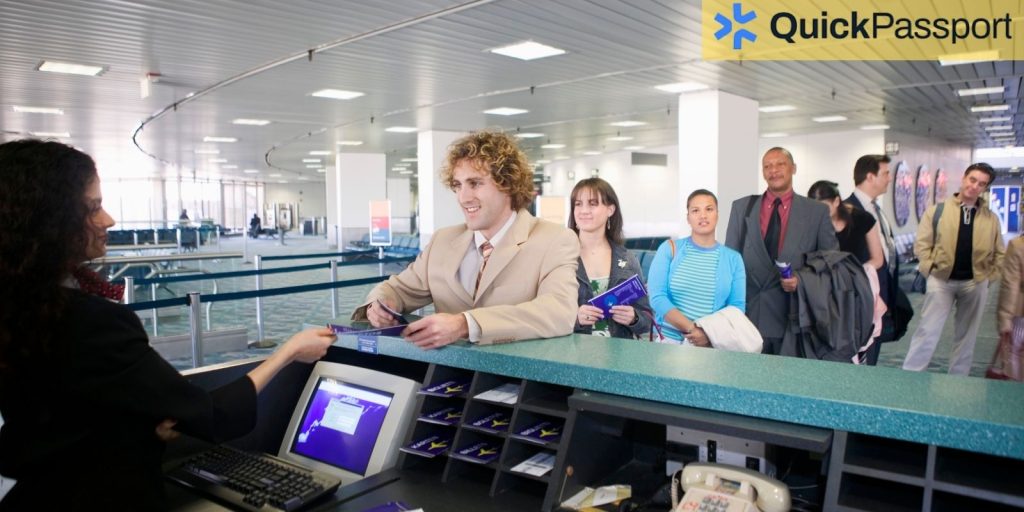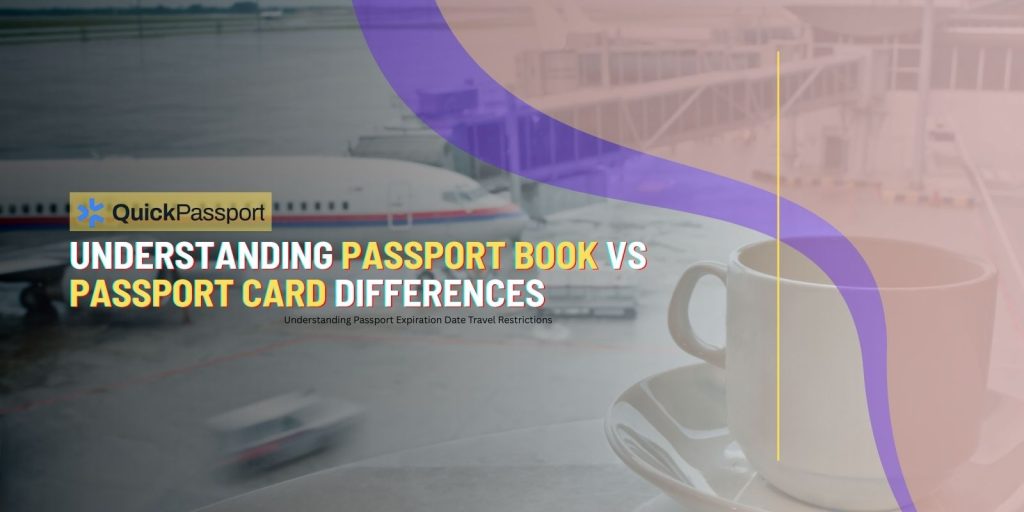Choosing between a passport book and passport card represents one of the most important decisions in travel document planning, yet many Americans remain unclear about the fundamental differences between these options. Your choice impacts where you can travel, how you cross borders, and what backup identification you carry. Making the wrong decision can leave you stranded at international borders or force expensive last-minute document changes that could have been easily avoided with proper planning.
Overview
This comprehensive comparison examines every aspect of passport books versus passport cards, helping Seattle residents make informed decisions based on their specific travel needs and lifestyle requirements. We’ll explore detailed cost comparisons, travel restrictions and allowances, processing differences, and practical applications for each document type. You’ll discover when passport cards provide sufficient coverage, understand situations requiring passport books, and learn about combination strategies that maximize flexibility. Our detailed analysis covers security features, renewal processes, and real-world scenarios that influence document selection, while expert insights help you avoid common mistakes that complicate travel plans.
Key Takeaways
- Passport books allow unrestricted international travel by air, land, and sea to all destinations worldwide
- Passport cards restrict travel to land and sea crossings only for Canada, Mexico, Caribbean, and Bermuda
- Cost differences show passport cards costing significantly less than books for both initial applications and renewals
- Processing times remain similar between both document types, with expedited options available for each
- Practical uses extend beyond travel, with both documents serving as federal identification for various purposes
- Combination applications allow obtaining both documents simultaneously for maximum flexibility and convenience
Passport Book Comprehensive Overview

Passport books serve as the gold standard for international travel documents, providing unrestricted access to worldwide destinations through all transportation methods. These traditional booklet-style documents contain 28 or 52 pages for visa stamps and entry endorsements, accommodating frequent travelers who accumulate numerous border crossings. The standard format measures approximately 5 x 3.5 inches when closed, fitting comfortably in most travel wallets and document holders.
International acceptance makes passport books the only American travel document recognized by every country worldwide. Air travel to any international destination requires passport books, as passport cards cannot be used for flights even to neighboring countries. This universal recognition provides peace of mind for travelers who may change destinations or encounter unexpected travel opportunities while abroad.
Security features in passport books include sophisticated anti-counterfeiting measures, biometric data storage, and tamper-resistant materials that meet international security standards. RFID technology embedded in modern passport books stores encrypted personal information while maintaining compatibility with automated border control systems used globally.
Page capacity varies between standard 28-page and large 52-page books, with the larger option available at no additional cost for applicants who request it during application. Frequent travelers benefit from additional pages that accommodate multiple trips without requiring early renewals due to insufficient space for stamps and visas.
Validity periods extend 10 years for adults and 5 years for minors under 16, providing long-term value despite higher initial costs. The extended validity makes passport books cost-effective for regular international travelers who amortize expenses across multiple trips and years of use.
Passport Card Complete Analysis
Passport cards provide a wallet-sized alternative to traditional passport books, measuring 3.375 x 2.125 inches similar to driver’s licenses or credit cards. This compact format offers convenience for land and sea travel to specific destinations while serving as REAL ID-compliant federal identification for domestic purposes. The durable plastic construction resists wear better than paper documents in everyday carry situations.
Travel limitations restrict passport cards to land and sea border crossings for Canada, Mexico, the Caribbean, and Bermuda. Air travel to any international destination remains impossible with passport cards, even flights to neighboring countries covered by the card’s geographic scope. These restrictions make passport cards suitable primarily for regional travelers with predictable destination patterns.
Border crossing efficiency often proves faster with passport cards at land crossings due to RFID technology that allows automated scanning without removing cards from wallets. Dedicated lanes at many border crossings accommodate RFID-enabled documents, reducing wait times during peak travel periods.
Domestic identification capabilities make passport cards valuable beyond international travel. TSA acceptance allows using passport cards for domestic flights, while various federal agencies, financial institutions, and employers recognize them as primary identification. REAL ID compliance ensures continued acceptance for federal purposes as traditional driver’s licenses face enhanced requirements.
Enhanced security features include tamper-resistant materials, encrypted RFID chips, and sophisticated printing techniques that prevent counterfeiting. Privacy protection allows disabling RFID functions when desired, addressing concerns about unauthorized scanning or tracking.
Replacement convenience proves easier for lost or stolen passport cards due to their compact size and wallet storage. Backup identification strategies often include passport cards as secondary documents that complement primary identification rather than replacing it entirely.
Cost Comparison and Value Analysis
Initial application costs show significant differences between passport books and cards. Adult passport books cost $165 total including application and execution fees, while passport cards cost $65 total. Combination applications for both documents simultaneously cost $195, providing savings compared to separate applications totaling $230.
Renewal costs maintain proportional differences with books costing $130 and cards $30 for adults. Children’s renewals require new applications regardless of document type, eliminating renewal cost advantages until they reach adult status. The lower renewal costs make passport cards attractive for frequent border crossers to covered destinations.
Processing fees remain identical for both document types regarding expedited service. Expedited processing adds $60 to either application, while overnight delivery costs an additional $19.53. QuickPassport Seattle offers specialized processing services that reduce timelines to 1-2 weeks for both document types while maintaining competitive pricing.
Value calculations depend heavily on travel patterns and intended use. Frequent Mexico travelers might find passport cards cost-effective, while occasional international travelers benefit more from passport books’ universal acceptance. Break-even analysis typically favors passport books for travelers visiting non-covered destinations even occasionally.
Hidden costs can affect total value calculations. Visa fees for countries requiring advance authorization apply regardless of document type used for travel. Travel insurance rates may vary based on destination accessibility, with some policies offering different coverage for regional versus worldwide travel.
Long-term considerations include document replacement costs if travel patterns change. Career changes, family circumstances, or lifestyle modifications might shift travel needs toward destinations requiring passport books, making initial card savings less valuable over time.
Travel Restrictions and Geographic Coverage

Passport card limitations restrict travel to specific neighboring regions accessible by land and sea transportation only. Covered destinations include all Canadian provinces and territories, all Mexican states, and numerous Caribbean islands including Bahamas, Barbados, Dominican Republic, Haiti, Jamaica, and Trinidad and Tobago. Bermuda also accepts passport cards for cruise ship arrivals and land border crossings.
Transportation restrictions prevent using passport cards for any air travel to international destinations, even flights to Canada or Mexico where cards work for land crossings. Cruise ship travel to covered destinations accepts passport cards, but repositioning cruises that visit non-covered ports require passport books for the entire journey.
Border crossing procedures vary between land and sea crossings using passport cards. Land borders with Canada and Mexico typically offer dedicated RFID lanes that process passport cards quickly during normal traffic periods. Sea ports require presenting cards to customs officers who may need additional time for processing compared to automated systems.
Emergency situations can complicate travel with passport cards when unexpected circumstances require alternative transportation. Medical emergencies requiring air evacuation from covered destinations need passport books for emergency flights. Weather disruptions that cancel sea travel may force air alternatives that passport cards cannot accommodate.
Destination flexibility remains limited with passport cards compared to passport books’ worldwide acceptance. Spontaneous travel opportunities to Europe, Asia, Africa, or South America require passport books, potentially limiting career opportunities or personal experiences that arise unexpectedly.
Future travel considerations should influence current document selection. Career advancement, family obligations, or personal interests might expand travel horizons beyond passport card coverage areas, making initial passport book investment more valuable despite higher costs.
Processing Times and Application Procedures
Application procedures remain identical for passport books and cards, both requiring Form DS-11 for new applications and Form DS-82 for eligible renewals. Supporting documentation requirements stay consistent regardless of document type, including citizenship proof, government-issued photo identification, and compliant passport photos.
Processing timelines typically match between passport books and cards through standard government channels. Routine processing takes 10-13 weeks for both document types, while expedited service reduces timelines to approximately 7-9 weeks for either option. Seasonal variations affect both documents similarly, with spring and summer applications taking longer than fall or winter submissions.
Expedited options cost the same $60 fee whether applied to passport books, cards, or combination applications. Regional Passport Agency appointments accommodate emergency situations for both document types when travelers have documented international travel within 14 days or 30 days for visa-required countries.
QuickPassport Seattle provides specialized processing services that significantly reduce waiting times for both passport books and cards. Our Priority Service delivers completed documents within 1-2 weeks, while Expedited Service processes applications within 2-4 weeks. These timelines apply equally to books, cards, or combination applications.
Photo requirements remain identical for both document types, following strict State Department specifications for size, composition, background, and quality. Professional photo services ensure compliance while maintaining consistent results across different document formats.
Application accuracy affects processing equally for books and cards, with errors causing similar delays regardless of document type. Professional review services catch common mistakes before submission, preventing costly delays that impact travel plans.
Security Features and Technology Comparison
RFID technology appears in both passport books and cards, storing encrypted personal information that expedites border processing when properly implemented. Passport books contain sophisticated chips embedded in back covers, while passport cards feature RFID technology throughout their construction for enhanced durability and performance.
Anti-counterfeiting measures differ between document types due to format variations. Passport books utilize security papers, specialized inks, watermarks, and complex binding techniques that make reproduction extremely difficult. Passport cards employ tamper-resistant plastics, holographic elements, and encrypted data storage that resist duplication attempts.
Biometric data storage capabilities vary between formats, with passport books accommodating more extensive information including facial recognition data and digital signatures. Passport cards store essential identification information while maintaining compatibility with automated border control systems used at covered crossings.
Privacy controls allow disabling RFID functions in both document types when desired. Passport holders often include RFID-blocking materials for books, while passport card sleeves provide similar protection for wallet-carried cards. These options address privacy concerns while maintaining functionality when needed.
International compatibility ensures both document types work with global security systems, though passport books offer broader acceptance across different technological implementations. Border technology varies between countries, with some systems optimized for passport books while others accommodate cards equally well.
Durability considerations favor passport cards for everyday carry due to their plastic construction and compact size. Passport books require more careful handling to prevent damage to pages, binding, or security features that could affect acceptance at borders.
Practical Applications Beyond Travel

Domestic identification represents a significant advantage for both document types in everyday American life. Federal recognition makes passports valuable for situations requiring enhanced identification, including federal building access, Social Security office visits, and certain employment verification processes.
REAL ID compliance ensures both passport books and cards meet enhanced identification requirements for domestic air travel and federal facility access. Driver’s license alternatives become important as states implement REAL ID standards that may complicate obtaining compliant state identification for some residents.
Financial applications often accept passports as primary identification for banking, investment, and credit services. Account opening procedures at banks and credit unions typically recognize both passport formats equally, while some financial institutions prefer passport books for their familiar format and extensive security features.
Employment verification through Form I-9 accepts both passport books and cards as standalone documents proving both identity and work authorization. HR departments familiar with passport verification may prefer books due to their traditional format, while cards’ durability makes them practical for workplace identification needs.
Age verification situations benefit from passport identification, particularly for activities requiring proof of age and citizenship simultaneously. Alcohol purchases, casino access, and certain entertainment venues recognize both document types, though passport books’ familiar format sometimes receives faster acceptance.
Government services across federal, state, and local levels generally accept both passport formats for various administrative procedures. Voter registration, benefit applications, and licensing procedures often streamline when applicants present federal identification documents rather than assembling multiple state-issued documents.
Common Mistakes and Decision Factors
Underestimating travel scope represents the most frequent mistake in passport selection. Regional travelers who initially choose passport cards may discover career opportunities, family obligations, or personal interests that require worldwide travel capabilities. Short-term thinking often leads to regret when travel horizons expand beyond originally anticipated destinations.
Emergency preparedness considerations often favor passport books despite higher costs. Medical emergencies requiring air evacuation, family crises demanding immediate international travel, or business opportunities involving unexpected destinations all require passport books regardless of original travel intentions.
Cost-only decisions can prove expensive when travel needs change. Savings calculations should consider potential document replacement costs if travel patterns evolve beyond passport card limitations. Professional development often involves international opportunities that passport cards cannot accommodate.
Processing timeline assumptions sometimes lead to poor document selection. Urgent travel needs affect both document types equally, with expedited services available for each. Planning decisions should focus on travel scope rather than processing differences that prove minimal in practice.
Family coordination becomes important when household members have different travel needs. Spouse employment, children’s educational opportunities, or extended family situations might require flexibility that combination applications or passport books provide better than individual passport cards.
Technology preferences occasionally influence decisions inappropriately. RFID concerns affect both document types, while privacy considerations have solutions available for each format. Security preferences should focus on overall document protection rather than format-specific features.
How QuickPassport Seattle Optimizes Your Choice
QuickPassport Seattle provides expert consultation to help residents select optimal passport documents based on comprehensive lifestyle and travel analysis. Our experienced team evaluates current travel patterns, future opportunities, family considerations, and budget constraints to recommend document strategies that maximize value and flexibility over time.
Combination application services streamline obtaining both passport books and cards simultaneously when maximum flexibility is desired. Cost savings from single application processing, coordinated timelines that deliver both documents together, and comprehensive coverage for all travel scenarios make combination applications attractive for many Seattle residents.
Professional guidance helps identify hidden factors that influence document selection. Career trajectory analysis, family planning considerations, and lifestyle trend evaluation often reveal travel needs that aren’t immediately obvious but significantly impact long-term document value and usefulness.
Processing optimization ensures fastest possible document delivery regardless of format selection. Our Priority Service delivers completed passport books, cards, or combinations within 1-2 weeks, while application accuracy review prevents delays that affect travel plans or emergency situations.
Seattle-area convenience eliminates travel to distant government facilities while providing comprehensive passport services under one roof. Photo services, document review, expedited processing coordination, and expert consultation combine to simplify complex decisions and ensure optimal outcomes for individual circumstances.
Common Questions About Passport Book vs Card Differences
Can I use a passport card for flights to Canada or Mexico?
No, passport cards cannot be used for any international air travel, even to neighboring countries like Canada or Mexico where cards work for land and sea crossings. Air travel to any international destination requires a passport book, regardless of the destination’s proximity or passport card coverage area.
Which document costs less over time for frequent Mexico travelers?
Passport cards cost significantly less both initially and for renewals, making them cost-effective for travelers who exclusively visit Mexico by land or sea. However, passport books provide more flexibility if travel plans expand to include air travel or destinations outside the card’s coverage area.
Do processing times differ between passport books and cards?
Processing times remain essentially identical for both document types, typically taking 10-13 weeks for standard service and 7-9 weeks for expedited processing. QuickPassport Seattle’s specialized services reduce timelines to 1-2 weeks for both books and cards without preferential processing based on document type.
Can I upgrade from a passport card to a book later?
No direct upgrade process exists; obtaining a passport book when you already have a card requires completing a full new application with all associated fees and processing times. Planning for potential future travel needs helps avoid this expensive and time-consuming situation.
Which document works better for cruise ship travel?
Both passport books and cards work for cruise ships visiting covered destinations including the Caribbean, Mexico, and Bermuda. However, repositioning cruises or itineraries that include non-covered ports require passport books for the entire journey, making books more flexible for varied cruise options.
Are there advantages to getting both documents simultaneously?
Yes, combination applications cost $195 compared to $230 for separate applications, while ensuring both documents have matching information and coordinated processing timelines. This approach provides maximum flexibility for different travel scenarios without significant additional cost over passport books alone.
How do the documents differ for domestic identification purposes?
Both passport books and cards serve as REAL ID-compliant federal identification for domestic flights, federal building access, and various government services. Passport cards’ compact size makes them more convenient for everyday carry, while passport books’ familiar format sometimes receives faster recognition from unfamiliar personnel.
Which document offers better security against theft or loss?
Passport cards’ compact size and wallet storage make them less likely to be lost but more vulnerable to theft along with other valuable wallet contents. Passport books require more careful storage but aren’t typically carried daily, reducing exposure to theft or loss during routine activities.
Can children use the same document selection strategy as adults?
Children under 16 cannot renew either document type and must always complete new applications, eliminating long-term cost advantages until they reach adult status. Family travel patterns and supervision considerations often influence document selection more than individual cost calculations for minor children.
What happens if I choose the wrong document type initially?
No exchange or upgrade programs exist; changing document types requires completing new applications with full fees and processing times. Careful consideration of travel patterns, career trajectory, and family needs helps avoid expensive document replacement situations when initial choices prove inadequate.
Making the Smart Choice for Your Travel Future
Selecting between passport books and cards requires careful consideration of current travel patterns, future opportunities, and lifestyle flexibility needs rather than simple cost comparisons. Strategic thinking about career development, family planning, and personal interests often reveals travel requirements that extend beyond immediate plans. Seattle residents benefit from professional guidance that evaluates comprehensive factors affecting long-term document value and usefulness.QuickPassport Seattle stands ready to help you navigate this important decision with expert consultation, cost-benefit analysis, and processing services tailored to your specific needs. Our comprehensive approach ensures you select optimal document strategies while providing expedited processing that accommodates urgent timelines. Contact our experienced team today to discover how we can simplify your passport decisions and ensure you’re prepared for whatever travel opportunities await.






